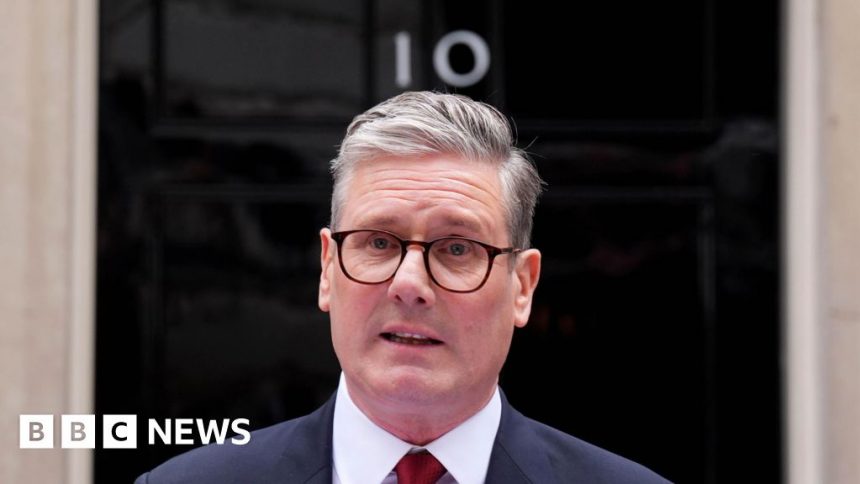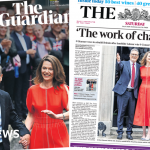Starmer names first cabinet after landslide win
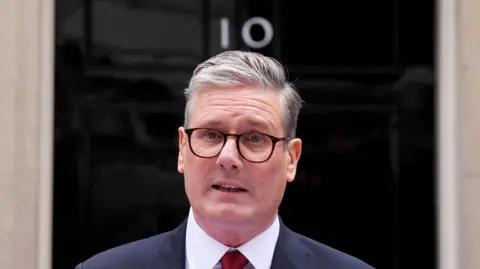 PA Media
PA MediaSir Keir Starmer has appointed his cabinet after Labour’s landslide election win, making Rachel Reeves the UK’s first female chancellor.
Deputy Prime Minister Angela Rayner is another of a record 11 women in the 25-strong team.
Earlier, after becoming the UK’s first Labour prime minister since 2010, Sir Keir promised to restore trust in politics with a “government of service”.
In a largely unchanged Labour frontbench line-up, David Lammy has become the foreign secretary.
Yvette Cooper, one of three members of the last Labour cabinet under Gordon Brown, is the home secretary.
The new cabinet will meet for the first time on Saturday morning, with Sir Keir vowing to start Labour’s “urgent” work immediately.

Speaking outside 10 Downing Street after being appointed PM by the King at Buckingham Palace, Sir Keir pledged: “My government will serve you, politics can be a force for good.
“The work of change begins immediately, but have no doubt, we will rebuild Britain.”
In his farewell speech outside No 10, Rishi Sunak apologised to unsuccessful Tory candidates and told the public: “I have heard your anger, your disappointment.”
Labour won 412 seats – giving the party a majority of 174 in the new House of Commons. The Conservatives were reduced to a record low for them of 121 MPs, a net fall of 251.
The Liberal Democrats made 63 gains, giving them 71 seats. The SNP suffered a severe defeat, losing 38 seats to stand on nine with one constituency still to declare.
Reform UK won five seats, include leader Nigel Farage’s in Clacton, with the Greens increasing their number of MPs from one to four. Plaid Cymru doubled its number of MPs from two to four.
Before polling day, Sir Keir repeatedly refused to confirm the details of his top team for fear of appearing complacent.
But within hours of becoming prime minister on Friday afternoon, his appointments came thick and fast – suggesting plans had been in place for a long time.
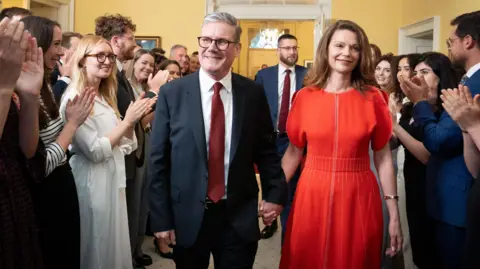 Reuters
ReutersAlongside her role as Sir Keir’s deputy, Ms Rayner will also take control of the Department for Levelling Up, Housing and Communities.
A significant majority of the cabinet were state educated – with only three attending private schools.
The other two veterans of the last Labour government are Energy Security and Net Zero Secretary Ed Miliband, and Northern Ireland Secretary Hilary Benn.
Mr Lammy also served as a minister in the last Labour government alongside Pat McFadden, who takes over the Cabinet Office, and Defence Secretary John Healey.
All cabinet members supported Remain in the 2016 EU referendum. Ahead of the election, Sir Keir ruled out the UK rejoining the EU single market in his lifetime.
While forming his cabinet, Sir Keir also spent his first few hours as PM receiving customary calls of congratulations from world leaders.
US President Joe Biden told Sir Keir he looked forward to “further strengthening the special relationship” with the UK, according to statements from both the White House and Downing Street
Both leaders “reaffirmed the special relationship between our nations and the importance of working together in support of freedom and democracy around the world”, the statements said.
Ukrainian President Volodymyr Zelensky also congratulated Sir Keir on his election victory.
In a social media post, Mr Zelensky said: “I am grateful to Prime Minister Starmer for reaffirming the UK’s principled and unwavering support for Ukraine.”
Meanwhile, Sir Keir and Irish Prime Minister Simon Harris committed themselves “to reset and strengthen” Anglo-Irish relations “with urgency and ambition”, the Irish government said.
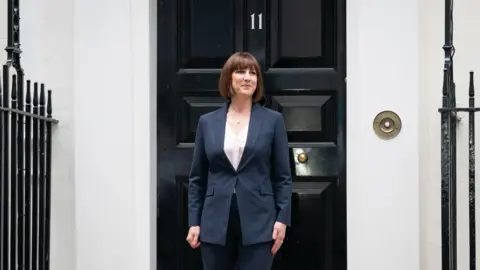 PA Media
PA MediaThough mostly a continuation of Sir Keir’s opposition team, the new cabinet includes some unexpected appointments.
The PM has chosen relative unknown Richard Hermer as attorney general, rather than Emily Thornberry who had shadowed the role.
Mr Hermer, a friend of Sir Keir’s from his days working as a barrister, will receive a life peerage to allow him to sit in the House of Lords and attend cabinet.
Some members of Sir Keir’s shadow cabinet have not yet been given new positions – including Ms Thornberry, shadow women and equalities secretary and party chair Anneliese Dodds, and shadow minister without portfolio Nick Thomas-Symonds.
A peerage has been given to former government chief scientific adviser Patrick Vallance to become a science minister in the new government.
James Timpson, the brother of ex-Tory MP Edward Timpson, has also received a peerage and has been appointed prisons minister.
Mr Timpson is currently CEO of the Timpson Group, which has a policy of employing ex-offenders across its UK watch and shoe repair chain.
Neither Lord Vallance nor Lord Timpson will attend cabinet, the BBC understands.
Ms Reeves is the first woman to hold the second most important role in government in the office’s 708-year history.
Posting on social media, Ms Reeves said being the first female chancellor came with a “historic responsibility”.
“To every young girl and woman reading this, let today show that there should be no limits on your ambitions.”
Ms Reeves told her new team of Treasury officials she was “under no illusions of the scale of challenges we face”.
In a speech she said she could not promise it would be easy and “it’s a long road ahead”.
“We’re a new team, it’s a new start so let’s get to work,” she added.
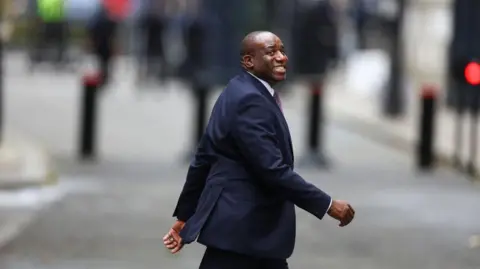 Reuters
ReutersMr Lammy posted on social media that being appointed foreign secretary was “the honour of my life”.
The world “faces huge challenges”, but Mr Lammy said he would “navigate them with the UK’s enormous strengths”.
Speaking to the BBC, Mr Lammy said his first priorities were “a reset on Europe, a reset on our relationships with the global south and a reset on climate”.
Asked if previous comments describing ex-US President Donald Trump as “a woman-hating, neo-Nazi-sympathizing sociopath” would hurt Labour’s relationship with a potential future Trump presidency, Mr Lammy said: “I will work closely with whoever is in the White House.”
Despite a winning a 174-seat majority, Sir Keir has been forced to fill unexpected holes in his team after key allies lost their seats, defying the night’s trend.
In one of the biggest shocks, shadow minister Jonathan Ashworth lost his Leicester South seat, which had a majority of more than 22,000, to independent candidate Shockat Adam, who campaigned against Mr Ashworth’s stance on the war in Gaza. .
Former shadow culture secretary Thangam Debbonaire lost to Green Party co-leader Carla Denyer in Bristol Central
After surviving a challenge from a pro-Gaza independent in Birmingham Ladywood, Shabana Mahmood, a key ally of Sir Keir, has been appointed justice secretary.
The Cabinet team announced are:
- Sir Keir Starmer – Prime Minister
- Angela Rayner – Deputy Prime Minister and Secretary of State for Levelling Up, Housing and Communities
- Rachel Reeves – Chancellor of the Exchequer
- Pat McFadden – Chancellor of the Duchy of Lancaster
- David Lammy – Secretary of State for Foreign, Commonwealth and Development Affairs
- Yvette Cooper – Secretary of State for the Home Department
- John Healey – Secretary of State for Defence
- Shabana Mahmood – Lord Chancellor and Secretary of State for Justice
- Wes Streeting – Secretary of State for Health and Social Care
- Bridget Phillipson – Secretary of State for Education
- Ed Miliband – Secretary of State for Energy Security and Net Zero
- Liz Kendall – Secretary of State for Work and Pensions
- Jonathan Reynolds – Secretary of State for Business and Trade
- Peter Kyle – Secretary of State for Science, Innovation and Technology
- Louise Haigh – Secretary of State for Transport
- Steve Reed – Secretary of State for Environment, Food and Rural Affairs
- Lisa Nandy – Secretary of State for Culture, Media and Sport
- Hilary Benn – Secretary of State for Northern Ireland
- Ian Murray – Secretary of State for Scotland
- Jo Stevens – Secretary of State for Wales
- Lucy Powell – Lord President of the Council and Leader of the House of Commons
- Baroness Smith – Lord Privy Seal and Leader of the House of Lords
- Alan Campbell – Chief Whip in the House of Commons
- Darren Jones – Shadow Chief Secretary to the Treasury
- Richard Hermer – Attorney General
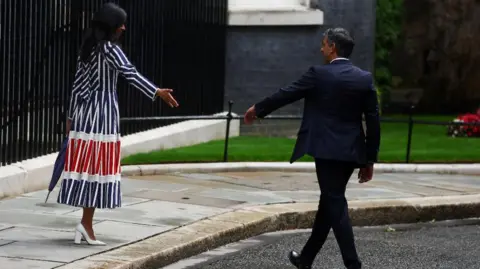 Reuters
ReutersOne of the big questions arising from the election result is what type of Conservative Party will emerge from the worst result in its modern history.
Mr Sunak pledged to remain party leader until formal arrangements for selecting his successor were in place.
Several potential leadership candidates were felled during a disastrous night for the Tories.
Penny Mordaunt – the former leader of the Commons and twice a candidate to be prime minister – lost her Portsmouth North seat, as did ex-cabinet minister Sir Jacob Rees-Mogg.
One key reason for the Conservatives grim results was the increased support for Reform UK – who won 14.3% of the vote, propelling party leader Nigel Farage into Parliament for the first time, alongside four other Reform MPs.
Liberal Democrat leader Sir Ed Davey’s decision to bungee jump, log flume and paddleboard his way through the campaign appeared to have paid of as his party became the third largest in the Commons.
The Greens recorded their best general election performance yet with 6.8% of the vote across Great Britain.



